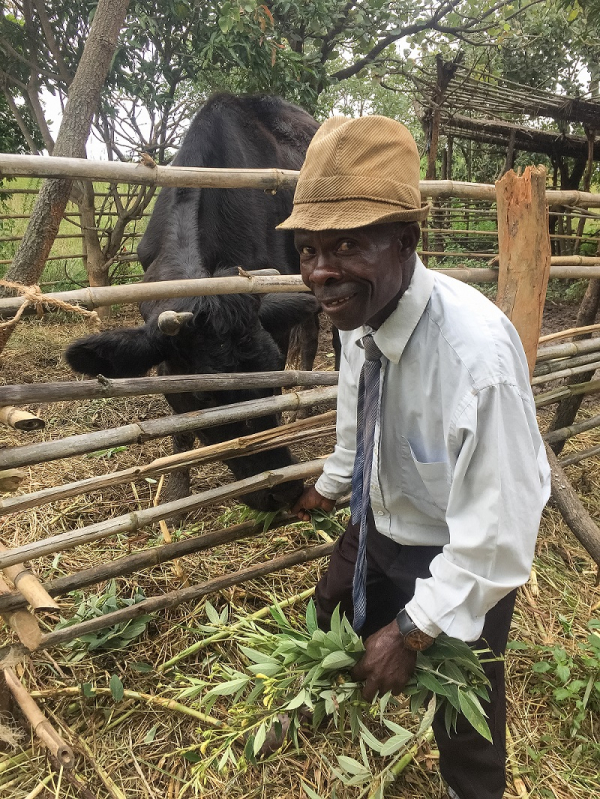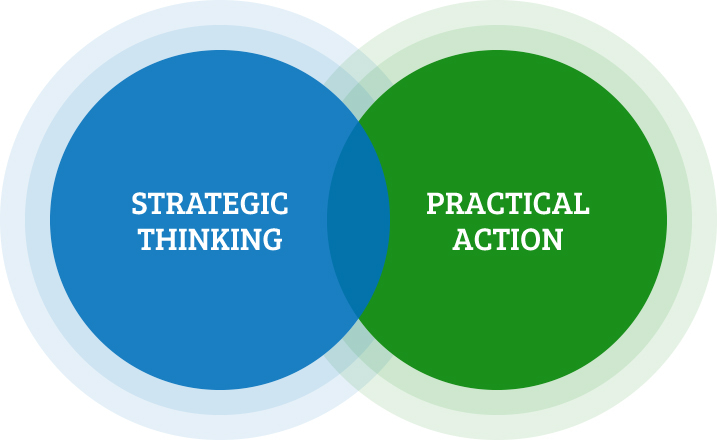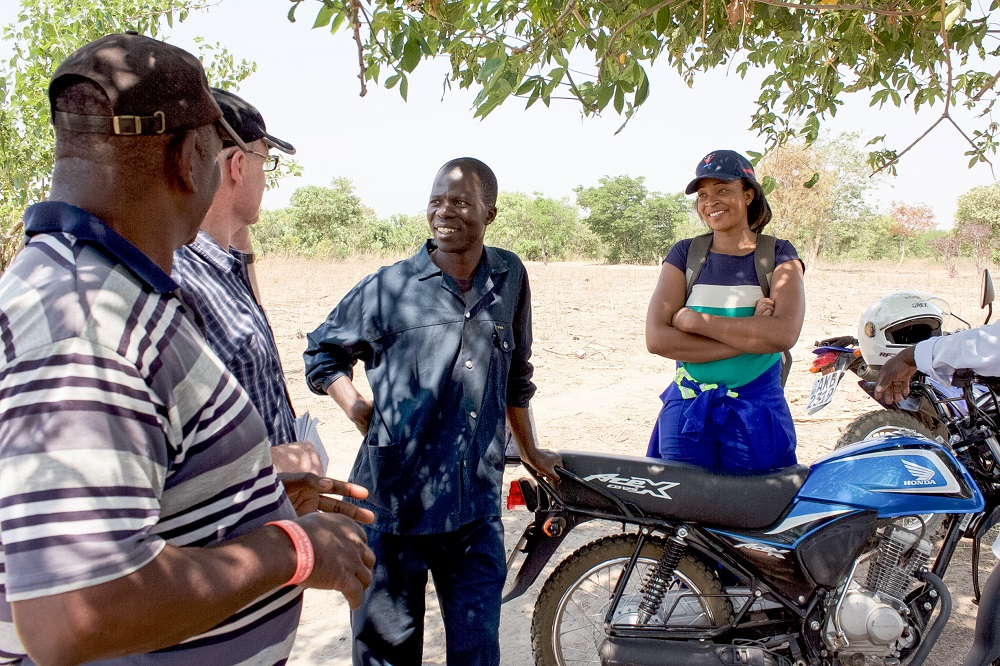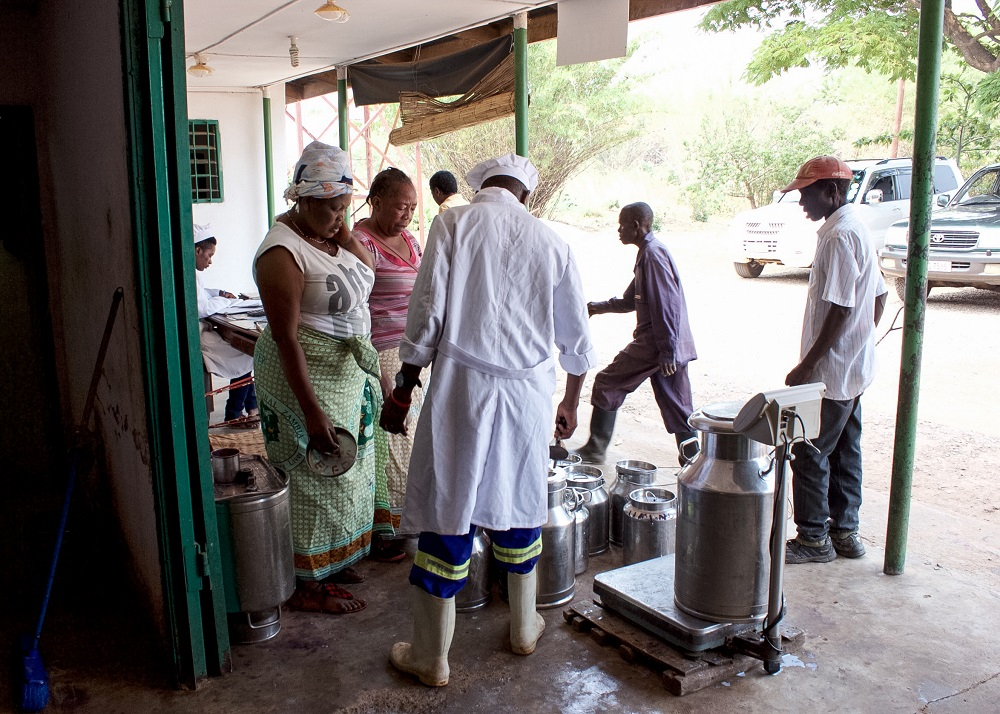News
Transforming farmer groups to accelerate smallholder growth

Prime has worked with farmer groups in Afghanistan, the Caribbean, Fiji and now we’re doing the same in Zambia. Our in-country Programme Manager, Tania Thomson, sheds light on what we’ve learnt from Zambia over the past 18 months.
Right: A farmer from Kwanshama Dairy Cooperative Union feeds his animal.
Funded by the New Zealand Ministry of Foreign Affairs and Trade under the New Zealand Aid Programme, the Zambia Dairy Transformation Programme or ZDTP is drawing on international skills and experience to improve the lives of smallholder dairy farmers in Zambia.
It’s a five-year programme and, as the name suggests, ‘transformation’ is key. In Zambia, an estimated 300,000 households own cattle. Most of them still produce milk using traditional methods, with only 20 per cent of the country’s milk production coming from commercial herds.
Working with existing farmer group structures is a great way to accelerate the development of small-scale farmers. One can demonstrate the value of new approaches within a group setting and the success of early adopters becomes contagious – others want to follow suit.
In Zambia, we’re working with six carefully-selected dairy farming unions or cooperatives to show how improved dairy systems can improve farmers’ productivity, milk quality and allow them to meet the needs of Zambia’s growing (and increasingly discerning) local market. We hope the results of our interventions will eventually help inform improved dairy practices throughout the country.
So far, through leveraging farmer structures, we have implemented new silage making practices and technology (such as the use of mechanised choppers to allow small-scale farmers to produce pit silage with minimal labour requirements) through the use of fodder and pasture crop demonstration plots. Silage demonstration days held earlier this year were attended by more than 350 community members from all six of the ZDTP’s target farmer cooperatives.
We are also training farmers in record keeping in order to improve financial management at the cooperative level – for example, monthly calculations and reporting of milk incomes, gross and net profit. This is so farmer cooperative boards can make informed decisions and plan for the future, instead of surviving from month to month on any profit that remains at the end of the month.
Here are some of our observations from Zambia so far – a place where the ‘ideal’ theoretical world of working with farmer groups meets reality.
Governance
In an ideal world, cooperatives practice good governance and have plans for continuity and succession. In reality, there can be a lack of understanding of what good governance is – and the difference between governance and management. We’re working with cooperatives in Central and Copperbelt Provinces to assist understanding of the role of a board and what should be expected of members. We’re also supporting our cooperatives to hold Annual General Meetings, as they are a key mechanism for effective governance and farmer engagement.
Vision
A group’s vision should be clear and able to be articulated by all members. In reality, these are often crafted during initial group development which may have been supported by an external organisation. We’re working with our target cooperatives to distil their visions for the future – and also to set out how cooperative benefits will be shared and accessed by all members.
Above: Extension Officers talking to farmers in Liteta.
Management
In an ideal world, farmer groups have strong management systems and procedures in place – from administration and finance to logistics and record keeping. They have good business plans, which are aligned to their visions. In a real-world situation, one needs to be aware of the skills and experience of group members. On the job support and mentorship is a great way to help. An example is the financial management training we are providing as part of the ZDTP. Our two Business Support Officers, Marvellous and Ngolwe, have been collecting information from cooperatives on a monthly basis such as income, expenses and amount of milk sold. They have been entering this information into Xero, a global web-based small business accounting platform, to calculate gross and net profit and milk volumes. Sharing these results with cooperative members is proving to be a great way to promote the benefits of record keeping to individual farmers and cooperatives. The long-term goal is for cooperatives to take over the collecting and reporting of monthly data.
Communication
Communication should be transparent and open within farmer groups. In the real world, there can be internal politicking, power struggles, information that gets changed as it is passed along and communications challenges due to rural settings – from network issues to the cost of mobile phones and phone credit. As far as the ZDTP goes, we are ensuring that our Business Support Officers and Extension Officers are delivering the same messages, thus minimising the opportunity for rumours to develop and heightening the importance of clear and timely communication within group settings.
Above: ZDTP Extension Officer Chrispine Banda.
Value chains
In an ideal world, farmer groups strengthen value chains and members are involved in one or more level, i.e. primary production, aggregation and/or value addition. We’ve been working with our target cooperatives to help them understand the value chain concept and their role within the value chain, to help them realise that value addition comes with its own costs and challenges – for example, milk processing comes with more overheads and different areas of legislative compliance (i.e. legislative compliance associated with raw milk production and sale).
Lobbying/advocacy
Farmer groups can play a key role in lobbying/advocating for their industry, which may influence the external environment for the benefit of members. Groups have more bargaining power than individuals when it comes to sourcing finance and lobbying for policy change. But in reality, there can be a lack of understanding of the bigger picture and lobbying takes skills and time. We hope that as our farmers’ business management skills grow and they have greater confidence in running their farm businesses that they will have more time to focus on strategic industry issues and development.
Logistics
Farming cooperatives need access to budgets, resources and skills. Externally, they need access to good quality roads, power, fuel, etc. The reality is that in rural settings in Zambia even basic utilities like water and power can be hard to come by. Repairs and maintenance often take time due to lack of expertise and locally-available parts or materials. This can limit expansion and means cooperatives, and those working with them, must have realistic goals and timeframes. A good way to counter this is through the shared management of assets. For example, we have introduced mechanised choppers for silage making and have informed cooperatives that hiring out forage choppers could be a possible business opportunity for farmers to raise cash to develop their own farm enterprises.
Above: Farmers delivering milk in Fisenge.
Conclusion
There are a lot of challenges in leveraging farmer groups to accelerate smallholder growth. Patience and flexibility are required. Not all groups will be commercially successful and sustainable – and not everyone can be a business-focused farmer. Nevertheless, after 18 months we have cemented deep engagement across the industry and achieved early tangible results. We are looking forward to further developing commercial business acumen and ensuring that there is a ‘contagion effect’ throughout the smallholder Zambian dairy industry.
The ZDTP is being implemented by Prime Consulting International Ltd in partnership with NIRAS International Development from Sweden. Cooperatives and farmer members are being provided with advice and support from a skilled national team with additional technical assistance provided through a team of highly-qualified and experienced international advisors.






